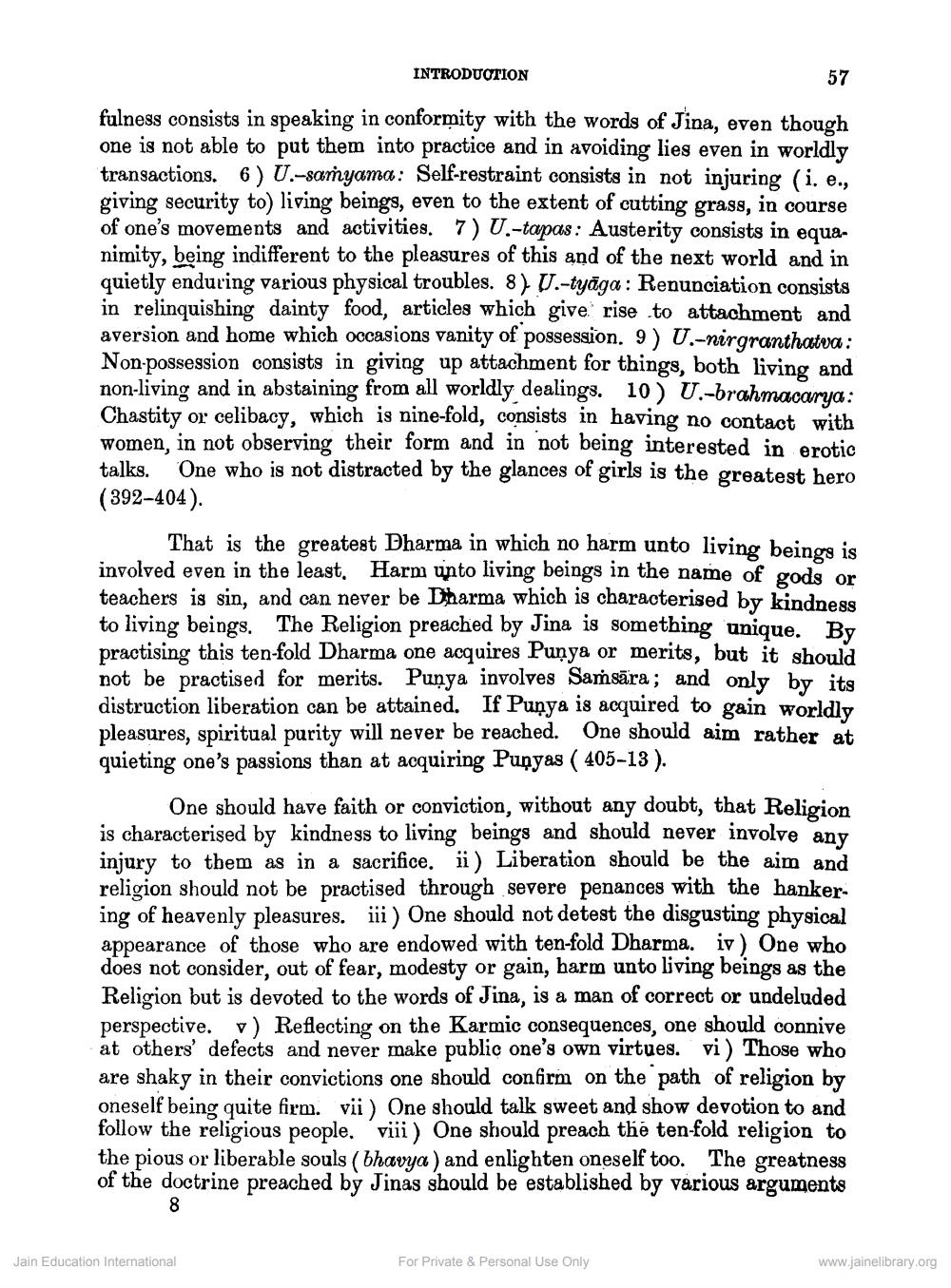________________
INTRODUCTION
57
fulness consists in speaking in conformity with the words of Jina, even though one is not able to put them into practice and in avoiding lies even in worldly transactions. 6) U.-samyama: Self-restraint consists in not injuring (i, e., giving security to living beings, even to the extent of cutting grass, in course of one's movements and activities. 7) U.-tapas: Austerity consists in equanimity, being indifferent to the pleasures of this and of the next world and in quietly enduring various physical troubles. 8) U.-tyāga: Renunciation consists in relinquishing dainty food, articles which give rise to attachment and aversion and home which occasions vanity of possession. 9) U.-nirgranthatva: Non possession consists in giving up attachment for things, both living and non-living and in abstaining from all worldly dealings. 10) U.-brahmacarya : Chastity or celibacy, which is nine-fold, consists in having no contact with women, in not observing their form and in not being interested in erotic talks. One who is not distracted by the glances of girls is the greatest hero (392-404).
That is the greatest Dharma in which no harm unto living beings is involved even in the least. Harm unto living beings in the name of gods or teachers is sin, and can never be Dharma which is characterised by kindness to living beings. The Religion preached by Jina is something unique. By practising this ten-fold Dharma one acquires Punya or merits, but it should not be practised for merits. Punya involves Samsāra; and only by its distruction liberation can be attained. If Punya is acquired to gain worldly pleasures, spiritual purity will never be reached. One should aim rather at quieting one's passions than at acquiring Punyas ( 405-13).
One should have faith or conviction, without any doubt, that Religion is characterised by kindness to living beings and should never involve any injury to them as in a sacrifice. ii) Liberation should be the aim and religion should not be practised through severe penances with the bankering of heavenly pleasures. iii) One should not detest the disgusting physical appearance of those who are endowed with ten-fold Dharma. iv) One who does not consider, out of fear, modesty or gain, harm unto living beings as the Religion but is devoted to the words of Jina, is a man of correct or undeluded perspective. V) Reflecting on the Karmic consequences, one should connive at others' defects and never make public one's own virtues. vi ) Those who are shaky in their convictions one should confirm on the path of religion by oneself being quite firm. vii) One should talk sweet and show devotion to and follow the religious people. viii) One should preach the ten-fold religion to the pious or liberable souls (bhavya ) and enlighten oneself too. The greatness of the doctrine preached by Jinas should be established by various arguments
Jain Education International
For Private & Personal Use Only
www.jainelibrary.org




